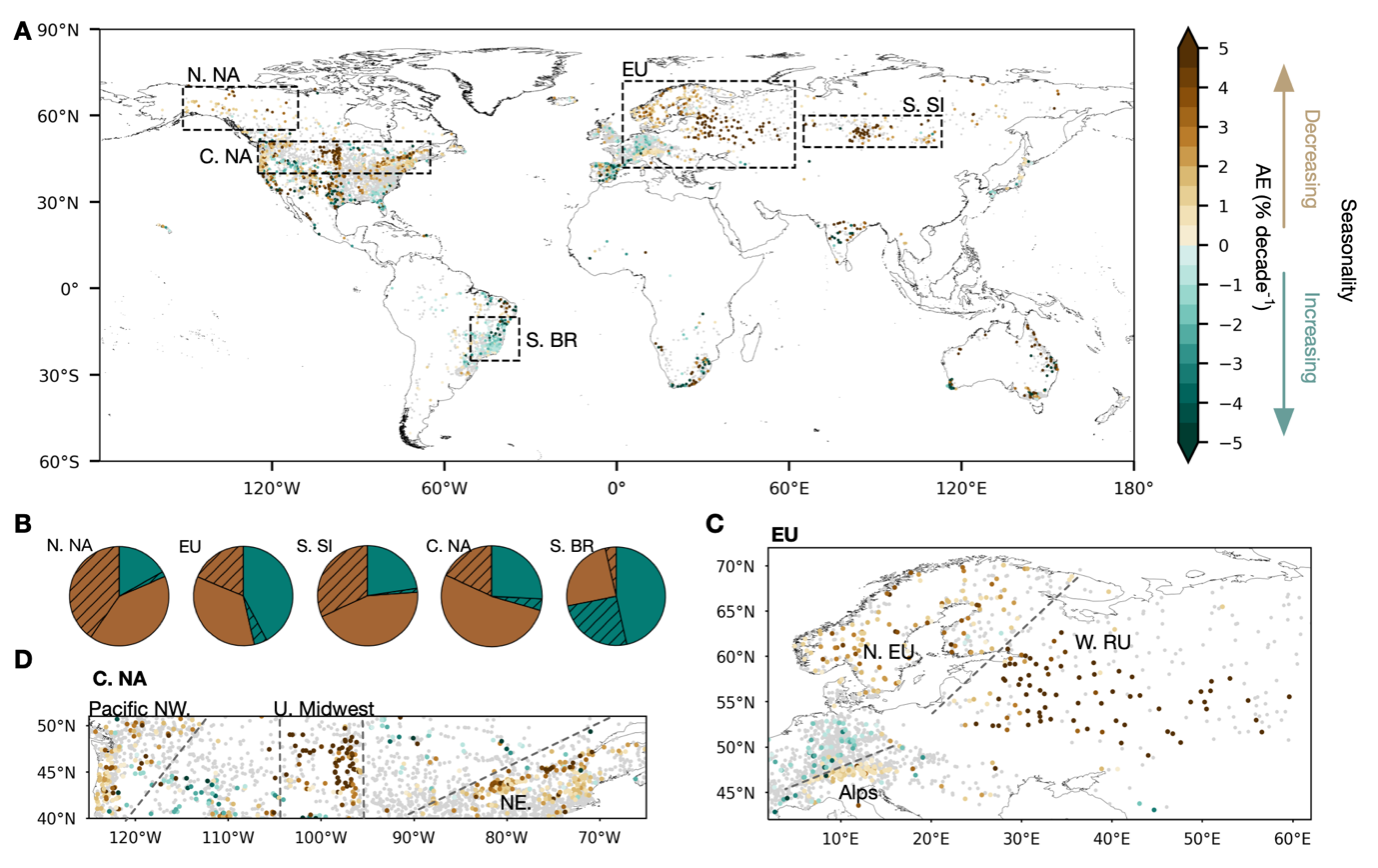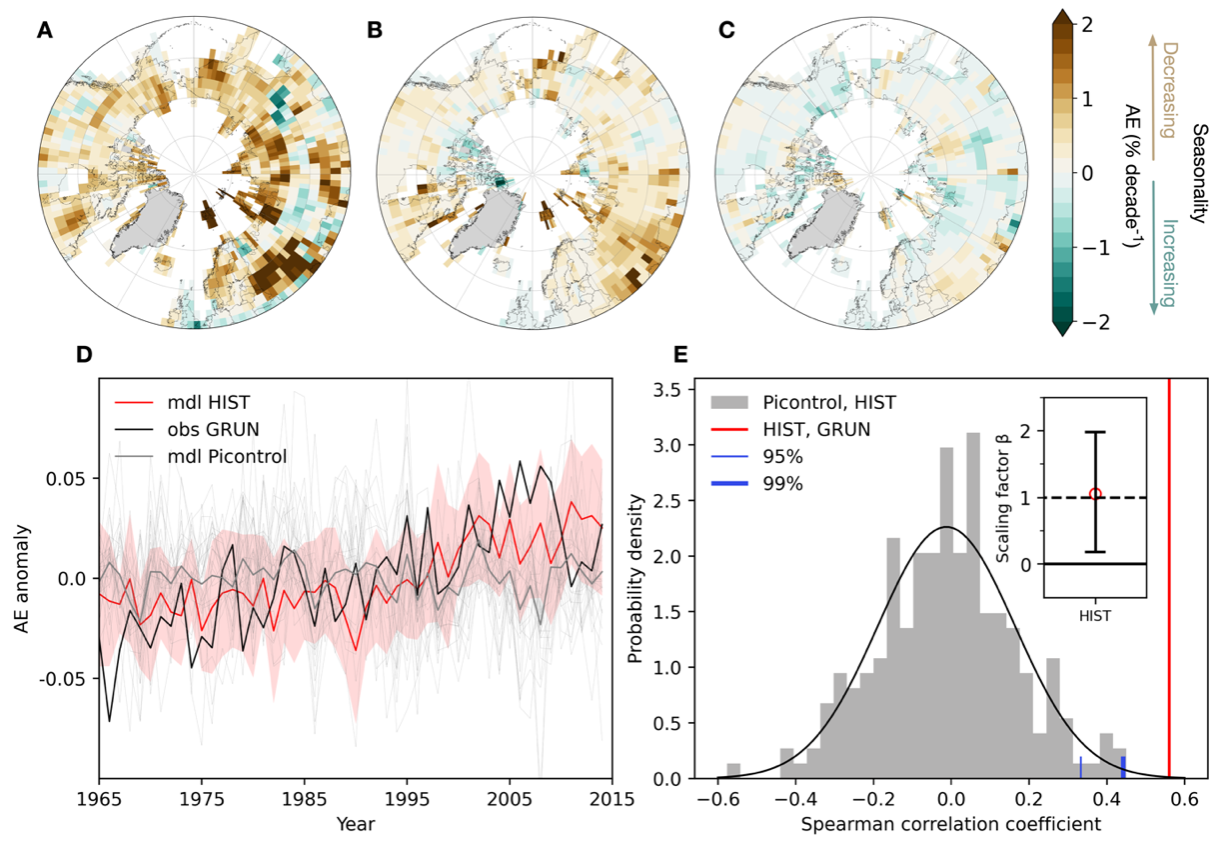Contributed by: Party Committee Propaganda Department | Edited by: Liu Ye | Preliminary Review: Liang Lili | Final Review: Qi Meng Date: March 1, 2024
On March 1, Prof. Liu Junguo published two academic papers inScienceas the corresponding author.Science, focusing on reporting the major original achievements worldwide, is one of the world's most influential and authoritative scientific journals. The titles of the two papers areAnthropogenic climate change has influenced global river flow seasonalityandThe changing nature of groundwater in the global water cycle. This is the first time for our university to publish high-level academic papers inSciencesince its establishment. This breakthrough powerfully demonstrates our international academic influence and plays a significant supporting role in building a scientific research center, improving the scientific and technological innovation capacity, and accelerating the "double first-class" construction in hydraulic engineering disciplines. The first paper is summarized as follows:

Prof. Liu Junguo, Ph.D. student Wang Hong from the Southern University of Science and Technology, and Prof. Joseph Holden of the University of Leeds published an article inScienceentitledAnthropogenic climate change has influenced global river flow seasonality. Combining global hydrological station measurement, flow reconstruction and global hydrological model and comprehensively using the optimal fingerprinting and two climate change detection and attribution methods based on the Spearman correlation coefficient, this study analyzed the seasonal changes of river flow worldwide, revealing that anthropogenic climate changes led to the seasonal weakening of river flow in the northern high latitudes.
River flow seasonality shows the annual cyclical variation of flow, which plays a vital role in the occurrence of floods and droughts. In addition, seasonal river flow provides essential habitats for freshwater organisms. However, human activities are affecting river ecology around the world. These activities directly regulate the river flow through the construction of water conservancy projects such as reservoirs and indirectly affect the river flow by changing land use or changing the temperature, precipitation, soil moisture and snow melt conditions.
Based on monthly river flow data from 10,120 hydrological stations around the world from 1965 to 2014, apportionment entropy was adopted to analyze river flow seasonality, and the spatial distribution, historical evolution and driving mechanism of global river flow seasonality were evaluated. It was demonstrated that about 21% of hydrological stations (2,134) showed significant changes in the river flow seasonality and discernible weakening in northern high latitudes (above 50°N). The number of stations with a significant seasonal variation trend is similar to that with a significant annual variation trend, but about two-thirds of the stations have no significant annual flow change, indicating that the global flow seasonal change is mainly manifested by the annual redistribution of flow.
Figure 1: Seasonal trend of river flow expressed by apportionment entropy (1965-2014)
Through the detection and attribution analysis of the climate change of river flow seasonality in northern high latitudes, it was found that anthropogenic climate change led to the seasonal weakening of river flow. Further analysis showed that global warming is the main factor leading to the seasonal change of river flow in this region, and precipitation has no significant effect on it. The warming causes the increase of early snow melt, decrease of glacier area, disappearance of perpetually frozen soil, decrease of snowfall proportion and shortening of river freezing period, which may be the main mechanism causing the seasonal change of river flow. If temperatures continue to rise, river flow seasonality may continue to be weakened, with potential impacts on the health of the river ecosystem. In the context of climate change, flood disaster prevention and control and progressive ecological restoration may be confronted with more severe challenges.

Figure 2: Comparison and attribution analysis of apportionment entropy trends in northern high latitudes (above 50°N) from 1965 to 2014
This research was supported by the National Natural Science Foundation of China (42361144001), the Special Fund for Strategic Pilot Technology of the Chinese Academy of Sciences (XDA20060402), and the Henan Provincial Key Laboratory of Hydrosphere and Watershed Water Security. Ph.D. student Wang Hong tutored by Prof. Liu Junguo is the first author of the paper, and Prof. Liu Junguo is the corresponding author. This paper is the first article submitted by Wang Hong during the doctoral study. Co-authors include professors Joseph Holden and Megan Klaar of the University of Leeds, and cooperating organizations include the Southern University of Science and Technology, University of Leeds (UK), and ETH Zurich (Switzerland).
The paper is available at: https://doi.org/10.1126/science.adi9501